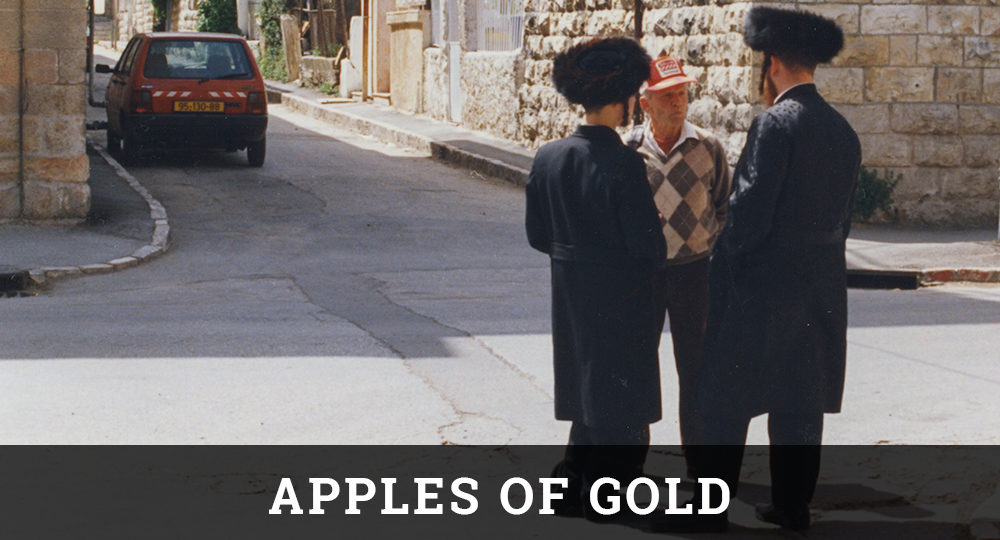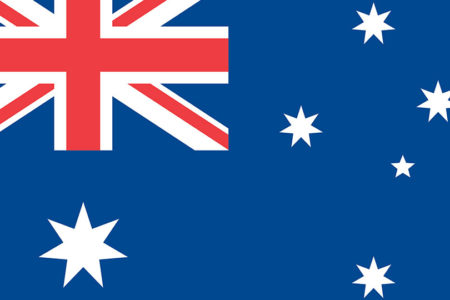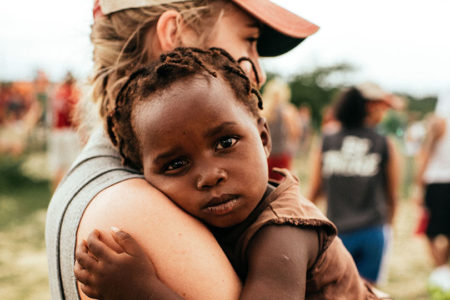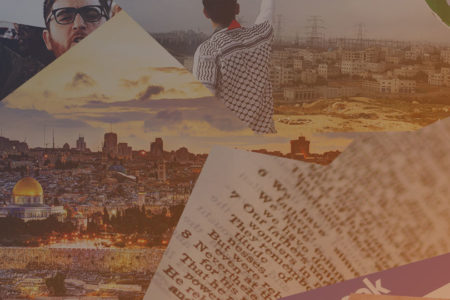Apples of Gold Sep/Oct 2017
We Jews have so many holidays that if we were to compete with other countries to see which nation celebrates the most holidays, Israel would win first place. I recently visited an Israeli hospital during the time surrounding Yom Kippur, an extremely important holiday on the Jewish calendar.
Since it is a religious hospital, ultra-Orthodox men freely go there to speak to new immigrants who are sick, trying to lead them into their many rabbinical traditions. During my visit, I overheard them talking to new Jewish immigrants from Russia, and I could not stand by silently. It is our duty to be active for the Lord. So I entered the conversation.
The ultra-Orthodox men told me they were trying to help the immigrants celebrate Yom Kippur, the Day of Atonement. “How? With what will you teach them?” I asked. They pointed to a big stack of books and also said they might even buy them chickens to sacrifice.
Between Rosh Hashanah and Yom Kippur, the ultra-Orthodox have a custom called Kaparot (atonement). A person swings a live chicken over his head, and the chicken is killed as a substitutionary sacrifice.
“Where does the Bible say we must sacrifice a chicken?” I asked. Surprised at my question, they became silent and stood there, looking at me. I then explained to the immigrants that these teachers were blind and were trying to make others blind. I told them sacrificing a chicken will not bring them forgiveness of sins, and I opened my Bible to the prophet Isaiah to read about the One who became our final sacrifice for sin:
Surely He has borne our griefs and carried our sorrows; yet we esteemed Him stricken, smitten by God, and afflicted. But He was wounded for our transgressions, He was bruised for our iniquities; the chastisement for our peace was upon Him, and by His stripes we are healed. All we like sheep have gone astray; we have turned, every one, to his own way; and the LORD has laid on Him the iniquity of us all (Isa. 53:4–6).
Then I asked the immigrants, “Which is more important? To read the Holy Bible or to read the stories of the rabbis?” Even though they had little religious knowledge, they answered that the Bible is more important.
At that point, the ultra-Orthodox men became angry and started to shout, “He wants to make them Christians!” The hospital’s rabbi rushed over to see what all the commotion was about.
“What are you telling these people?” he asked me.
“These men come here and try to make other people blind with their fictitious stories,” I said. “I do not believe in all of those stories because they do not align with the Holy Bible. It is my duty, as one who believes in the living God, to show them the truth and warn them of their evil ways.”
When the rabbi asked how I came to such faith, I read to him Isaiah 53. He continued to ask me questions, and the Russians became even more interested in what I had to say.
Then I asked the rabbi, “Where does this chapter mention Christianity?” He remained as silent as a fish. The young ultra-Orthodox men were surprised to see that the rabbi they thought would silence me had no answers.
Thinking about Kaparot, I asked, “Was the sacrifice about which Isaiah wrote a chicken?”
One of the Russians responded, “We do not know much about the Bible, but it is clear as sunlight that a poor chicken cannot be our sacrifice, according to this passage.” The rabbi remained silent.
We had a long conversation. I pray this Yom Kippur they will come to know the One about whom the prophet Isaiah wrote—the One who sacrificed His life to pay for our sins once and for all.
—The Friends of Israel Archives,
October 2003








